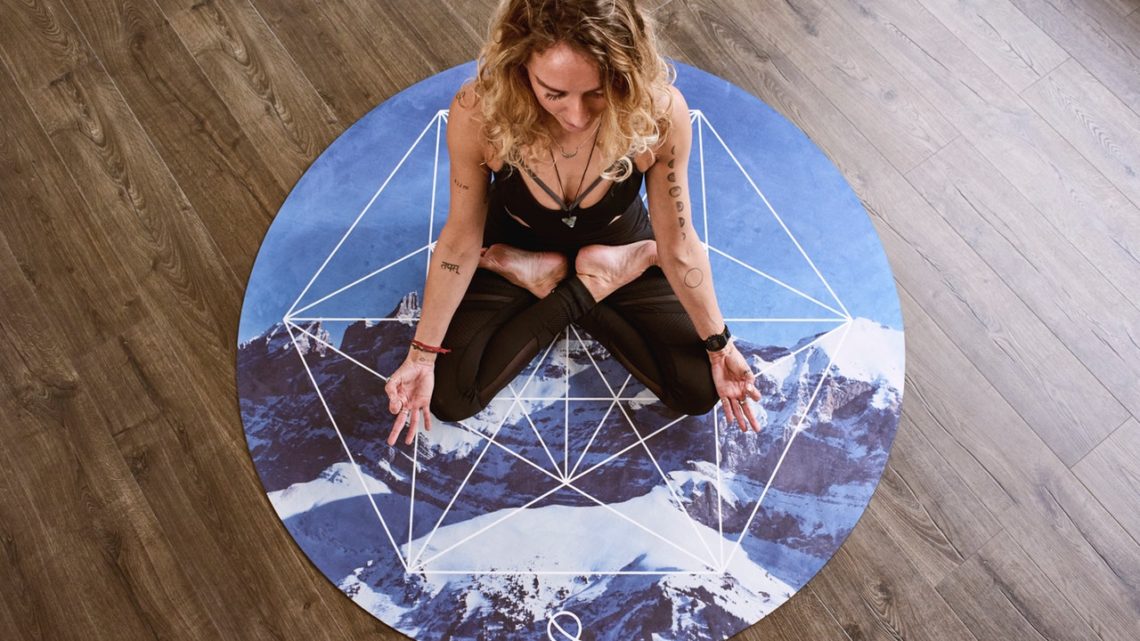“When you’re in your head, you’re dead.” – Tony Robbins
I love this quote from Tony Robbins because I can directly relate to it.
There have been times in my life when I’ve been so in my head that the best parts of me were dead. I was taken over by my negative mind running my life, my mood, and my self-worth. I was unhappy, jealous, frustrated, angry and, at the worst of times, depressed to the point of debilitation.
I saw little hope or future. I assumed everyone else had the same negative thoughts about me as I did. I was in my head, and in so many ways I was dead.
Why I started meditating
1. I needed a break from always thinking
I needed to get out of my head. Sports, particularly ultimate frisbee, used to be my outlet. This was the only way I really knew how to get into my body. After the onset of a groin injury that kept me from doing most physical activities, I embarked on meditation in hopes of getting some of the mental relief that I previously got from sports and exercise.
2. I wanted to learn how to be more in the present moment
I had read several books and watched countless videos that talked about living in the present (especially those by Eckhart Tolle). I was inspired that there was a different way of living than I had ever really considered. I wanted to fully feel what this type of living was like.
3. Yoga encouraged me
Whenever I had done yoga in the past, the biggest benefit was how my mind felt after. Savasana – the part at the end when you lie on the floor was always my favourite part.
4. I noticed something in others who meditated
People I knew who spent time meditating were people I looked up to. They had a way of finding happiness in everyday situations that I didn’t.
Why I meditate now
It’s been 4 years since I started meditating, and 2 years since I’ve made it a daily practice. The reasons I meditate now are quite different from why I started.
1. Self-awareness
This has been the biggest gift I’ve received from meditation. I’m so much more aware of my thoughts and patterns of thinking than I used to be. I’ve been able to make BIG strides in how I feel, how I react to others, and how I exist in my relationships – with my partner, friends, family, and strangers.
2. Feeling my emotions
I originally thought meditating would be all peace and quiet, and I’d always be in a calm state once I got ‘good enough’ at it….I was wrong. Because of the constant cycle of ever-changing thoughts and emotions that come up, I sometimes have to sit through very heavy and challenging experiences. I used to either avoid or mask these feelings. Now that I try to deal with them head on, I feel more empowered and more in control of my life.
3. Peace and quiet
It doesn’t happen all the time, but it does happen. Especially 4 years in, I can now find this state much more frequently. Once I get into it, I don’t want to leave it. It’s warm, fuzzy, and cosy.
4. Momentum
I’ve seen enough benefits that I now feel a strong need to meditate every day…Even though I don’t feel like I make progress every day, and sometimes I even feel like I regress in my practice, when I look at the big picture, I can see that I am evolving and growing a deeper understanding of myself and my place in the world.
5. The spillover effect
My meditation doesn’t just happen when I sit down for 20 minutes every morning to do it. It happens in moments throughout my day too. Like when I’m walking down the street in a rush and catch myself entirely in my head. I’ll slow down and pay attention to my surroundings – the trees, the houses, the people. My practice also spills over into my day when I’m listening to someone else speak. I’ll catch myself thinking about what I want to say and then stop to re-focus and fully listen to what the other person is saying.
There’s no doubt meditation has made me a better person. I’m less reactive, better able to deal with stress, and spend more time in my body than I used to – without even having to chase a frisbee to do it! There are several forms of meditation and tools you can use and it’s easier than ever to get started.
How to start meditating consistently
So how exactly do you start to build the habit? I’d love to tell you!
1. Make time for it every day
Seems simple, but this is probably the most important step. Pick a time of day when you’ll do it every day (or at least every weekday). Most meditators will tell you the best time for them is in the morning, soon after they wake up. Our brains are generally quieter than in the middle of our hectic day. This is true for most people. Plus, by doing it in the morning you’ll get the reward of achieving your goal early every day.
2. Start small
Like really small. Start with 1 or 2 minutes. If you start with 10 or 20 minutes, you’ll likely get bored, distracted or frustrated that “It isn’t working”. You don’t start training for a marathon by doing a 10-mile run. 1-2 minutes may seem really short, and that’s the point. You are more likely to stick with it and to experience moments that give you the momentum to continue.
3. Focus on your breath
This is the easiest form of meditation for most people. Breathe in, breathe out, breathe in, breathe out. If you start thinking about something, that’s ok! It’s totally normal and happens to even the most experienced meditators. The goal is to develop the awareness that you started thinking about something, and then let that thought go to return to the breath. This is waaaay harder than you might think, as your brain will want to keep thinking. And in most cases, it will. Also, totally normal.
4. Keep coming back to the breath
You’ll continue to do this back and forth dance from thought to breath… from breath to thought… That’s what meditation really is – a development of awareness, recognition of thoughts, and intentional letting go of thoughts. As you improve you’ll get better at recognizing thoughts and letting them go. Over time you’ll develop a much greater awareness of your thoughts, which can lead to significant changes in your overall health and happiness. But beware, this takes time, patience and regular practice. Just like training for a marathon, you build your capacity over time through repeated and expanded practice.
5. Use a timer
When you start, set it for 1 minute. When you are ready to go to 2 minutes, do two separate 1-minute meditations. Continue to do this when you expand to 3 minutes, 4 minutes and 5 minutes. Having the timer go off every minute will give you the opportunity to check in with yourself and see if you are lost in thinking. If you are, it’ll be your cue to go back to focusing on your breath. If you don’t give yourself some credit for staying focused (a smile, a first pump, perhaps even a jig) and reset the timer. As you start to see progress, you can set the timer for longer intervals.
6. Experiment with other forms of meditation
There is so much more you can do than focus on your breath. You can focus on a candle or a tree. Your feet. Your hands. Your heart. The key when starting to meditate is to find a focus point and stay with it for as long as you can, then keep coming back to it.
7. Use online tools
There are some great meditation apps – try Headspace, or Insight Timer. A few useful websites with guided and scripted meditations are TaraBrach.com and JackKornfield.com
Start now
Do a 1-minute meditation. If you really want to start meditating, what better time than now!? Set a timer for 1 minute and focus on your breath. When you finish, commit to a time tomorrow when you’ll do this again. At the end of each session make that commitment to the following day.
I can’t think of a better way to truly get to know yourself, love yourself, and evolve yourself. Beyond that, the wider societal benefits of empathy, compassion, and connection are nothing short of necessary in today’s world. And of course, there are no nasty side effects…
Are you new to meditation or do you have an experienced practice? What’s your experience been like so far?
If you enjoyed this post, feel free to share it with your friends and family. After all, sharing is caring!
Author: Craig Kulyk
Craig Kulyk helps people be more productive by prioritizing self-care through his blog Create Good Mornings. To master your morning routine, get a copy of the free guide ‘Love Waking Up: 5 Simple Strategies to Customize Your Morning Routine’.













